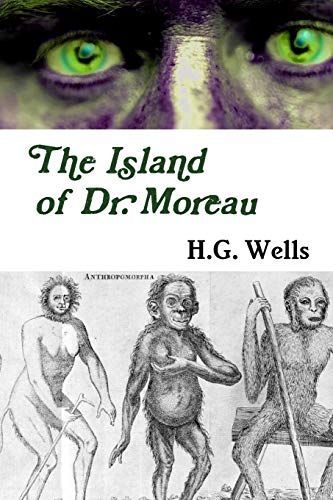
The Island of Dr. Moreau
""ARE WE NOT MEN?"" Edward Prendick survives a shipwreck and winds up on a remote Pacific island, where a mad scientist is vivisecting animals to create hybrid beast people. Will Prendick survive and recover from the horrors he has seen? Will anyone believe him? In this classic early science-fiction novel, H.G. Wells exposes the anxieties of the Victorian Age: fearing the implications of evolutionary theory, disturbed by the godlike power of science over nature, & doubtful about the inevitability of human progress. Might humans be capable of degeneration? The Island of Dr. Moreau raises vital questions about bioethics, animal rights, & the nature of humanity. Published by Spruce Alley Press
Reviews
Molly M@molsmcq
Sarah Sammis@pussreboots
lauratrebilcock@lauratriple
Colleen@mirificmoxie
Deyana@dawndeydusk
Barbara Williford@barbarawilliford
Karim Nas@karimnas
Mirjana Prodan@miryamc
Loredana@the_french_librarian
Kiki Kawai@kikikawai
Kerri McDonald@kerrimcbooknerd
Jana Pashovska@infernno
Jemima Scott@readwithmims
Kim@kimlipse
Rebecca Lysaght@hattails
elliot@drowned
Jacob Reader@logladyland
Kiersten@gaiasbones
Florence@mysweetpeaches
Helen Bright@lemonista
Brendan @bwbrewster
A. D. Knapp@haselrig
mo@mofinegan
Sherry@catsareit